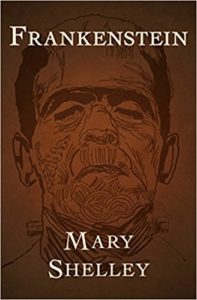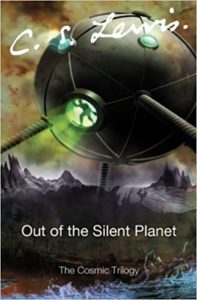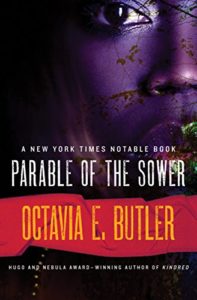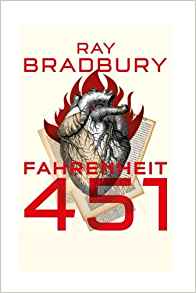In June of 2018 I blogged about my desire to read more hopeful science fiction. Since then I’ve talked about Woman on the Edge of Time, The Lovely Bones, Semiosis, and Astraea. Today I’m back with another recommendation for hopeful sci-fi. This time it’s a short story!
If you have recommendations for future instalments of this series, I’d sure like to hear them. Leave a comment below or send me message about it on Twitter.
The Toynbee Convector
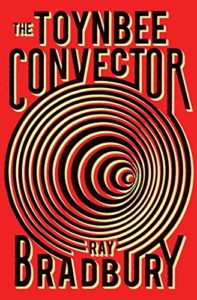 “The Toynbee Convector” is a short story by Ray Bradbury that was first published in 1984 as a standalone piece. It was later republished as part of an anthology, so that is where the book cover in this post came from.
“The Toynbee Convector” is a short story by Ray Bradbury that was first published in 1984 as a standalone piece. It was later republished as part of an anthology, so that is where the book cover in this post came from.
Feel free to click on the link at the beginning of this sentence if you’d like to read it for yourselves before continuing on with this post. It’s a quick read.
The storyline follows a reporter named Roger Shumway who has been given the opportunity to interview Craig Bennett Stiles, a time traveller who had visited the distant future and come back home bursting with hope.
A century has passed since his trip, and Stiles is a very old man now. This interview will almost certainly be his last chance to tell the world more about what his journey was like and why he was so excited about what he saw in humanity’s future.
Given the short length of this piece and my strict no-spoilers policy, I can’t tell you much else about the plot. Let’s talk about my emotional reaction to it instead!
Real Problems with No Easy Solutions
 The first thing that impressed me about this short story was that it existed in our universe, warts and all. This wasn’t an episode of Star Trek….although Star Trek would be an interesting choice for a future Hopeful Science Fiction post!
The first thing that impressed me about this short story was that it existed in our universe, warts and all. This wasn’t an episode of Star Trek….although Star Trek would be an interesting choice for a future Hopeful Science Fiction post!
These characters were well aware of the pollution, violent conflict, inequality, climate change, and other major issues that humanity has yet to solve.
I found it fascinating to see how Roger reacted to the idea that so many of our biggest threats would be resolved. He was just as intrigued – and honestly maybe a little suspicious of – those claims as I would be if I spoke to someone who claimed that this same scenario would happen in real life.
Everyone Needs Hope
 The importance of hope was of the recurring themes in Roger and Craig’s interview, and it was the second thing that made me think this would be the perfect addition to this series.
The importance of hope was of the recurring themes in Roger and Craig’s interview, and it was the second thing that made me think this would be the perfect addition to this series.
Craig had come of age at a time when the average’s person hope for the future was waning. So many unsuccessful attempts had been made to fix the world that some folks were beginning to wonder if it was impossible for us to make things better.
Can one person make a difference?
If one person isn’t capable of improving the world, how many willing participants do you need in order to change things?
What do you do when nothing seems to work?
I’ll leave it up my readers to discover the answers to these questions for themselves.
We All Have Choices
 Not everyone necessarily has the same opportunities in life, but we all have choices.
Not everyone necessarily has the same opportunities in life, but we all have choices.
The third thing that convinced me this was a piece of hopeful science fiction worth sharing with all of you was how Craig and Roger responded to the choices that were available to them.
Their personalities couldn’t have been more different. Roger was a risk-taker, while Craig was someone who seemed to have spent his entire life making the most cautious moves possible.
Yet they both made decisions that were eerily similar. I loved seeing how two personalities on opposite sides of the spectrum could end up coming to some of the same conclusions.
Those of you who read the free copy of this story before continuing on with this post know what I’m talking about. For everyone else, I’m doing my best to entice you to check it out without giving away too many details.
What hopeful science fiction stories have you been reading recently?

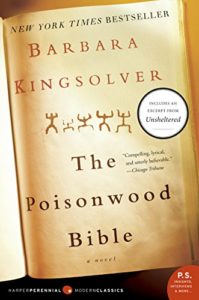 The Poisonwood Bible by Barbara Kingsolver
The Poisonwood Bible by Barbara Kingsolver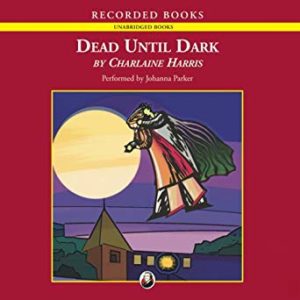
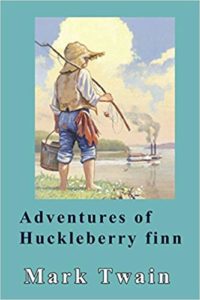
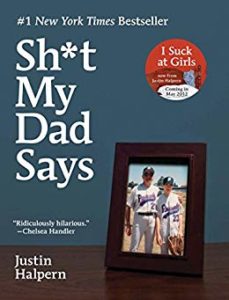
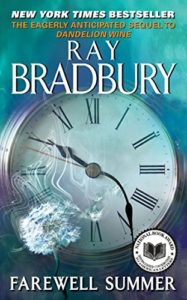 Farewell Summer by Ray Bradbury
Farewell Summer by Ray Bradbury